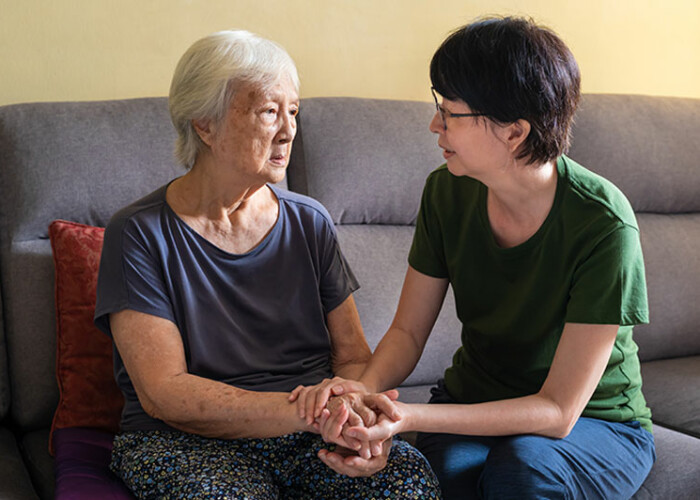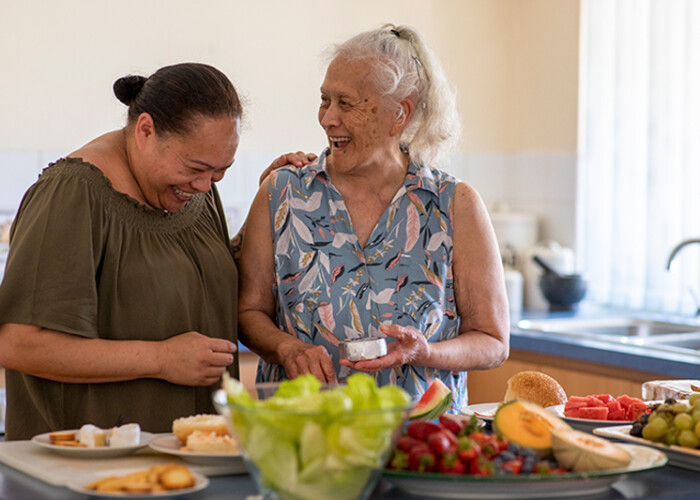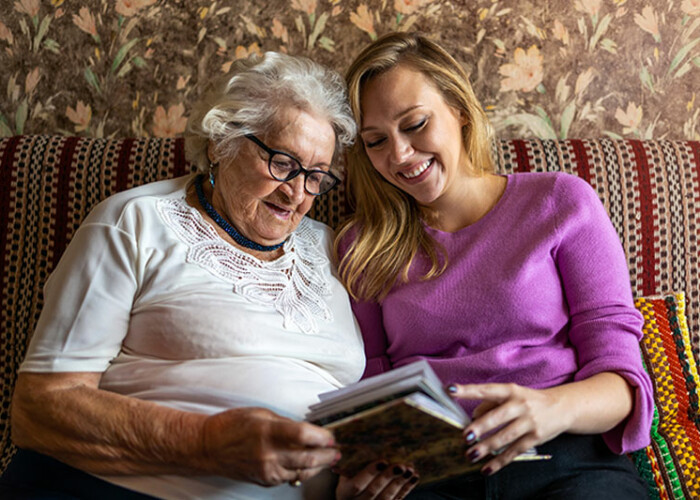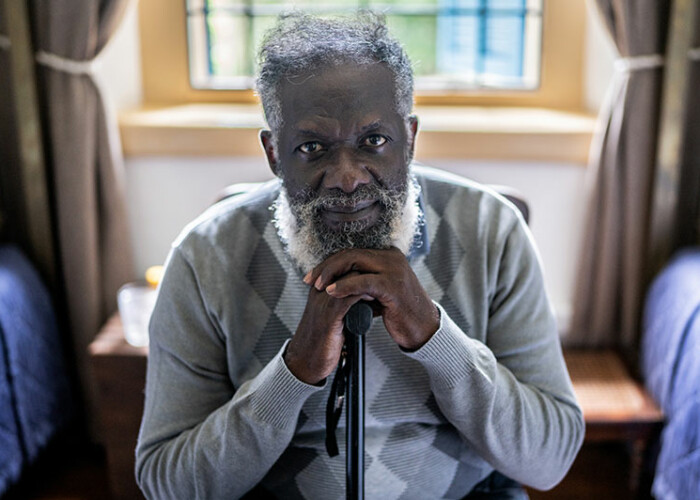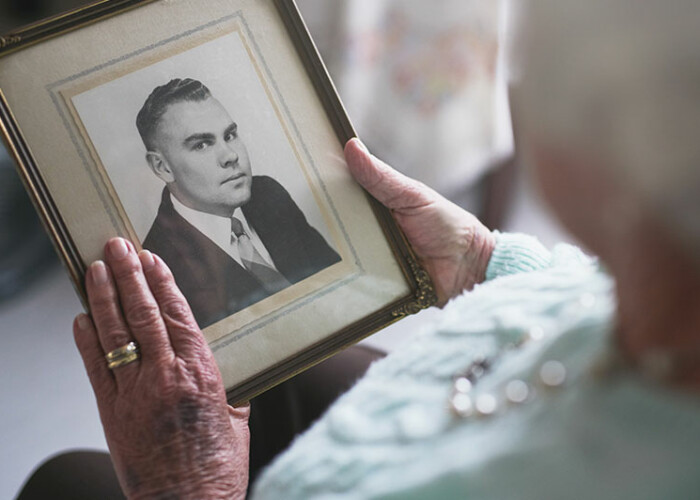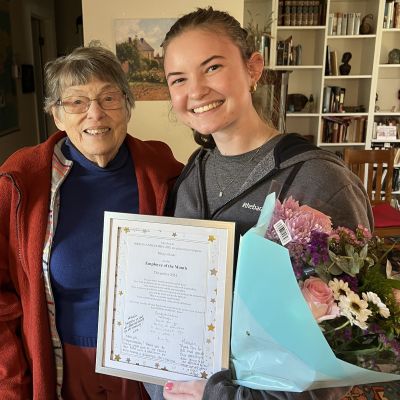Senior Health
Could Alzheimer’s Disease Be an Autoimmune Condition?
Could Alzheimer’s disease be an autoimmune condition? Find out here!
Finding a cure for Alzheimer’s has become as tangled as the tau threads long thought to be the root cause of the disease. But now, research workers may be drawing one step closer to unraveling the puzzle of Alzheimer’s, by using a different train of thought. New studies are leaning towards the potential of an inflammatory response in the brain, which poses the question: could Alzheimer’s disease be an autoimmune condition?
Steps to Boost Socialization for Introverted Seniors
Try these creative ideas to improve socialization for introverted seniors.
Prepare yourself…the holidays will be here before we know it! Although there are plenty of people who flourish on the hectic pace of celebrations and parties, there are others who balk at the thought of going outside of their comfort zone and into more intensive social obligations. It may simply come down to one integral difference: introversion vs. extroversion. And it is important to know which distinction the seniors in your life lean towards more. Socialization for introverted seniors is just as important as for extroverted seniors, and finding the right type of socialization to help them feel most comfortable is key.
What Is Parkinson’s Wellness Recovery and Is It Right for Someone I Love?
Learn about Parkinson’s Wellness Recovery to see if it might be helpful for someone you love.
For individuals living with Parkinson’s disease, the challenges of managing balance, mobility, and overall movement can be profound. As the disease progresses, these difficulties may increase, leading many to assume that less physical activity might be beneficial. However, this assumption is counter to what medical experts and extensive research suggest. In fact, increasing physical activity is strongly encouraged because of its numerous documented benefits in managing Parkinson’s symptoms. In fact, it’s believed to be on par with the adherence to prescribed medications for its role in effective disease management.
The Incredible Benefits of Hugs for Seniors
The benefits of hugs for seniors may surprise you!
Remember during the height of the pandemic, when social distancing was the norm and we needed to be satisfied with virtual visits? One of the most basic aspects of being a human – physical touch – was put aside in order to protect us all from harm.
Get Cooking With These Creative Dementia Care Activities
If there’s one thing that connects us all, it’s food! Think about how many cherished memories have been made through the years that included food at the center of them all: holiday meals, birthday parties, wedding celebrations. Even ordinary days include routines that become ingrained in us around food, from that first aromatic cup of coffee in the morning to a shared bowl of buttery popcorn with family while watching a show on television.
It really is no surprise that food is not just a necessity for our physical health, but often a powerful way to connect with someone with dementia. Here are several creative dementia care activities you can try to help spark memories while engaging all the senses through food.
Storytelling. Pull out an old cookbook and look through the recipes together to determine if any spark memories. … Read More »
What to Do When a Parent Refuses Care
When a parent refuses care, these tips can help you come to a resolution.
Let’s say you’re starting to notice some warning signs that cause you to worry about Dad’s ability to continue to take care of himself. Perhaps he’s struggling to maintain the home the way he always has. Or maybe he had a close call while driving that could have caused injury to himself or another person. Maybe he just seems more disoriented lately. Whatever the reason, you’ve decided to talk with him about home care services. The problem is, he refuses to even entertain the idea. What are you to do when a parent refuses care that they desperately need?
If you’re at an impasse on how to proceed, these ideas can be helpful.
Let him know you’re in this together. Digging in your heels and … Read More »
Improve Memory With These Simple Strategies
Help improve memory for someone you love with dementia with these proven tactics.
Remember memorizing the order of the colors of the rainbow in elementary school? A lot of us were introduced to Roy G. Biv to learn this feat – one of the many mnemonics we learn that, interestingly, often stay with us for a lifetime and help us improve memory.
As we get older, some degree of memory impairment is to be anticipated; and naturally it is even more pronounced when Alzheimer’s disease or another form of dementia is a factor. Researchers are continually aiming to find effective methods to enhance memory and cognitive functioning, and have discovered some interesting findings on “old school” strategies such as mnemonics. Here’s what they have most recently identified:
Mnemonics
Mnemonics provides a link to a memory through a song, … Read More »
Do You Know When and How to Downsize for Seniors with Dementia?
Seniors with dementia can benefit from downsizing.
It’s clear that the family home is just too overwhelming for Mom and Dad to care for. A small home is for sale just around the corner from you that’s ideal: a beautiful flower garden in the front yard, a sunny, cheerful kitchen, and no stairs to navigate. Now it is time to begin the downsizing process. The only problem? Mom has dementia.
Any level of change can be very challenging for a senior with dementia. Leaving the familiarity of home and moving into a brand new one can enhance feelings of anxiety and agitation, but there are strategies to ease the transition.
Take your time. It can be your natural thought to make this process as quick as possible – like ripping off a band-aid. However, a much better approach in … Read More »
What People With Alzheimer’s Want You to Know
Improve communication with someone you love by learning what people with Alzheimer’s want you to know.
If you’ve ever wished you could look a senior with dementia in the eye and understand exactly what they’re thinking, we just might be able to help you with that! Communicating effectively with someone with dementia isn’t easy, especially as the disease progresses. Following are several statements provided by people with Alzheimer’s to give you some insight into what it feels like to live with the disease.
You haven’t lost me. A diagnosis of dementia does impact a person in many ways, but it doesn’t change the essence of who they are. “I love the same people and doing the same things I did before my diagnosis,” explains Dale Rivard. It’s essential to recognize that while memory and cognitive abilities may decline, the … Read More »
Broken Heart Syndrome: How to Help a Loved One Who Is Grieving
It’s not easy to know how to help a loved one who is grieving, but these tips are a great place to start.
In his documentary about grief, George Shelley uses an analogy of glitter. Toss a handful of glitter into the air, and it’s going to settle into all the cracks and crevices of the room, impossible to fully sweep up and remove. Those who have lost a loved one can relate. Yet in certain instances, grief could be so overwhelming that it could result in a serious and aptly named condition: broken heart syndrome.
Broken heart syndrome is a very real physical condition from the intense stress experienced in certain types of grief (such as one spouse losing the other after decades of marriage). The medical term is takotsubo cardiomyopathy, a temporary enlargement of the heart … Read More »


